BALI TRAVEL GUIDE & HOLIDAY INFORMATION
Before you visit Bali there are a number of questions you may have. We have put together all the information on the most common questions our guests ask from planning your holiday , arriving in Bali and when it is time to depart.
INDONESIA – BALI and LOMBOK
Bali is small island, just 140km by 80km and lies between Java, the most highly populated and influential of all the islands, and Lombok, one of the quieter and moderately slower paced islands. Like many islands, Bali has developed a world of its own. It not only captures what is special about Indonesia but also has a uniqueness of its own.
Less developed than Bali, some say Lombok has better beaches, a bigger volcano and more varied landscapes. Tourism is still low key, and many visitors are independent travellers drawn by the island’s intoxicating diving and snorkelling, hiking and surf spots, as well as Lombok’s intriguing endemic culture.

Capital of Indonesia is Jakarta
Climate: Being close to the equator the temperature of Bali is tropical with temperatures ranging from 21 to 33 degrees Celsius. Bali has two main seasons – wet season generally from October to March and dry season March to October.
Health: Vaccinations may be required. It is important to discuss your travel plans with a qualified doctor to ensure that you are adequately protected against endemic diseases. Please also note that, as Bali enjoys a hot, humid, sunny climate for much of the year, it is important to pack a hat and 30+ sunscreen to protect your skin. You might find it useful to carry a first aid kit with the basic essentials you might need for diarrhoea, fever, etc plus mosquito repellent, band aids, and antiseptic.
Passport and Visa Requirements: Australian, New Zealand as well as another 42 odd countries are now visa free for stays up to 30 days. For passengers travelling on different passports please check with your travel consultant.
Passports must be valid for at least 6 months from the date of arrival. This rule is strictly enforced. Failure to have 6 months validity can result in being denied boarding or entry to Indonesia.
Departure Taxes: No departure tax is applicable it is built into your airline ticket.
Currency: The local currency of Indonesia is the Indonesian Rupiah (IDR). Australian dollars are readily accepted in all areas of Indonesia.
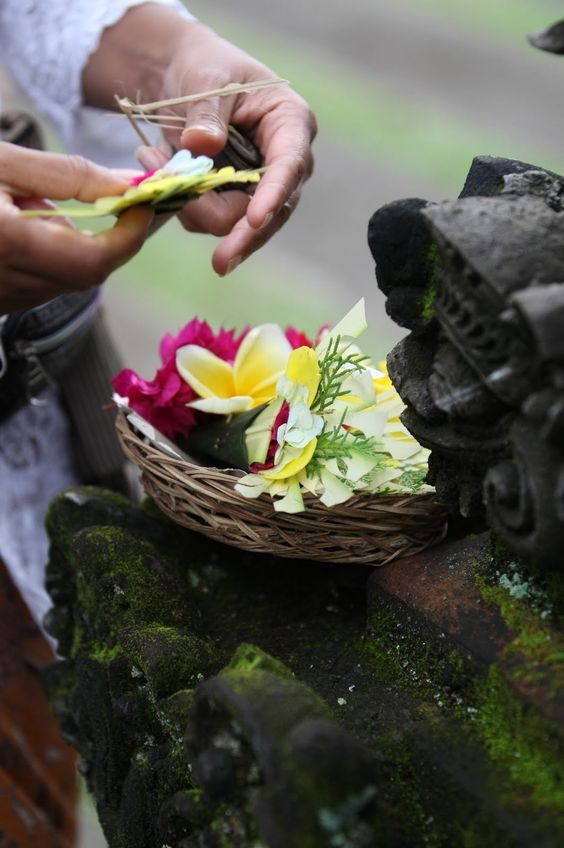
Access to money is a necessity for travel and one of our guests biggest queries prior to coming on holiday is what is the best way to access money.
Credit Cards are usually only accepted at any of the large hotels, large shopping centres or some shops within main areas of Bali. Be aware credit cards will usually have a 4% fee added to transactions to cover processing expenses.
ATM Machines are available in all populated areas of Bali. In some outer areas of Bali ATM’s are much less available so it is recommended to carry cash when venturing out of central tourist areas. We recommend to only use ATM machines that are located by the side of a bank or inside of a bank, in a mini mart or circle k, or have 24 hour security. This is due to people placing skimming devices in ATM machines in unsupervised areas.
ATM maximum withdrawal limits in Bali is usually only 30 notes so with the largest denomination notes being 50’000 IDR and 100’000 IDR this means per withdrawal you can only get between 1.500.000 – 3.000.000 IDR (Approx. $150 – $300 AUD). You can usually do this multiple time’s up to 10.000.000 IDR (Approx. $1’000 AUD) per day. Please be aware ATM’s will carry an international withdrawal fees from your bank in your home country and the bank you use in Indonesia. This can add up quickly ranging from 50.000 – 150.000 per transaction for fees.
Money exchange exist within Bali and rates often fluctuate. It is recommended to exchange money inside specialist money exchange buildings only as these are registered businesses that adhere to government regulations. Our recommended Money Exchanges are Central Kuta and BMC as these 2 companies are large trusted companies that can be found allover Bali.
There are many small back alley way money changers on almost every street but please stay out of these locations. They will advertise a very high rate but are masters of “sleight of hand” or magicians so your money will disappear. Money exchange rates at the airport are also much less than you will find at licensed money exchange premises in usual tourist areas.
Business Hours / Operating Hours in Bali
There is a saying in Indonesia Jam Karet which means rubber time. We will provide some basic guides to shop opening and closing times but please be aware they are subject to change depending on the day.
- Government Offices: 9:00 am – 5:00 pm
- Department Store: 9:00 am – 10:00 pm
- Grocery Store: 8:00 am – 10:00 pm
- Banks: 8:00 am – 3:30 pm
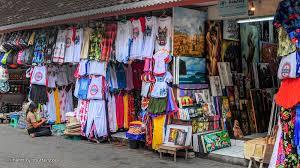
Tipping: Whilst not expected for most common services such as taxi drivers and porterage, tipping is a way to express thanks for exceptional service. Hotels and restaurants usually add 10-15% service charge into to the total bill in lieu of a tip. We recommend checking before accepting the service if you are unsure the charge is included.
Airport Customs: All narcotics are illegal in Indonesia. The use, sale or purchase of narcotics results in long prison terms, huge fines and death, in some cases. Once caught, you are immediately placed in detention until trial, and the sentences are severe.
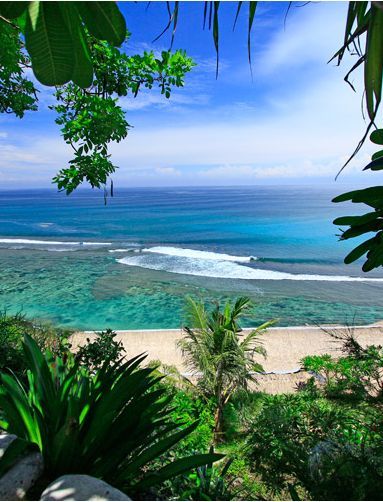
To increase your safety, there are new rules for taking liquids, aerosols and gels on flights into and out of Australia.
Each container of liquids, aerosols or gels in your carry-on baggage must be 100 millilitres or less. All the containers must be sealed in a transparent, one-litre plastic bag. You are only allowed one plastic bag. Any transparent resealable bag of one litre capacity or less is allowed. You may still carry on board prescription medicines. Baby products and non-prescription medicines that you need for the flight are also allowed. Proof of need may be required. When you get to the screening point, you will have to surrender any liquids, aerosols or gels greater than 100ml that you still have with you, including duty free. The new rules also introduce random frisk searches as part of the screening process.
For more information, email lags@dotars.gov.au or contact the liquids, aerosols and gels hotline on 1300 791 581 between 8:30am and 5:30pm Monday to Friday
Duty Free: Standard duty-free allowance: 2 litres of alcoholic beverages, 200 cigarettes, 50 cigars or 100 grams of tobacco.
There is no restriction on import and export of foreign currencies in cash or travellers checks, but there is an export limit of 50,000 Indonesian rupiah.
Industry is currently developing arrangements to allow duty free liquids, aerosols and gels to be packed and verified prior to check-in, subject to Australian Government requirements. Final details of this process are still being worked on. You should confirm these arrangements with your off airport duty free retailer.
Tourism Refund Scheme (TRS)
If you have purchased liquid, aerosol and gel items and wish to make a TRS claim (for example wine, perfume etc) you can pack these goods into your hold baggage, and proceed to the TRS facility with your tax invoice, as per current practice.
Customs staff at TRS facilities will ask you a series of questions to enable them to determine the validity of the claim.
Oversized goods, including oversized liquid, aerosol and gel goods such as cases of wine, should continue to be treated as they are now by presenting them to the Customs Client Services Desks located land-side in all international airports. Passengers who have their goods sighted at Customs Client Services Desks are still required to present their passport, international boarding pass and tax invoice at TRS facilities.
For further information contact the TRS Information Hotline on 1300 555 043 or the Customs Information and Support Centre on 1300 363 263.
Electricity: 220 Volts – Most hotels use 220 volts, 50 cycles and a round, two pronged slim plug.
Language: Basha Indonesia (similar to Malay) is the national language as well as English, Dutch, local dialects (the most widely spoken of which is Javanese).
Visitors who wish to learn a few local words will be able to pick up some words of Pasar, known also as Market Indonesian. English is widely spoken, especially in hotels, resorts and tourist areas.
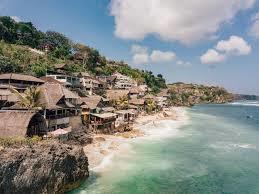
- Good morning = Selamat pagi
- Good afternoon = Selamat sore
- Good evening = Selamat malam
- Good bye = Selamat jalan/tinggal
- Thank you = Terima kasih
- Excuse me = Permisi
- Please (may I have) = Minta
- Please (help) = Tolong
- How much = Berapa
- Eat = Makan
- Drink = Minum
- Water = Air
- Food = Makanan
- Yes = Ya
- No = Tidak
- To the beach = Ke pantai
- To the shop = Ke toko
- Do drink bottled water.
- Do put on high factor waterproof sunscreen cream.
- Do shake hands. Handshaking is customary, for both men and women.
- On introduction and greeting, smiling is a national characteristic.
- Don’t drink from the tap, even in the most luxurious resort.
- Don’t forget to take your passport or a photocopy of your ID with you at all times.
- Don’t swim outside designated swimming areas on the beach, currents can be very strong. Do swim between the red and yellow flags.
- Don’t point at anything with your foot as this is considered very rude. Information can also be obtained through your hotel and notices outside establishments.
- NOTE: This information is to be used as a guide only.
Getting around: The best way to get around Bali is with your own transport, whether you drive, hire a driver or ride a bike. This gives you the flexibility to explore at will and allows you to reach many places that are otherwise inaccessible. It’s worth noting that many pricier restaurants in places such as South Bali and Ubud will arrange free transport to/from the establishment. Just ask. Public transport is cheap but can be cause for very long journeys if you’re not sticking to a major route. In addition, some places are just impossible to reach. There are also tourist shuttle buses and these combine economy with convenience.
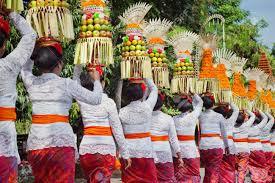
Clothing: Take lightweight cottons including T-shirts, shorts, casual dresses and swimwear. Dress is very casual in some parts of Bali such as Kuta, but more conservative in Sanur and Nusa Dua. In Ubud and other places inland, women should favour a skirt or cotton dress rather than a pair of shorts. If you call into at government office, dress neatly and conservatively. Generally, revealing clothing is to be avoided except at beach resorts – so both men and women are advised to keep a sarong handy as a cover-up. Thongs are fine around beaches, but closed, lightweight shoes are more practical for walking any distance. Some of the upmarket resorts will have a more sophisticated dress code, so be prepared to dress up on occasions. A sweater will be needed for visits to elevated, inland areas.
Whilst we take every care to ensure that the information is correct at time of printing, we urge you to check details of your selected holiday with your travel consultant prior to booking. You should inquire about local issues and conditions at destinations prior to travel. Check You In Travel & Tours makes no representations as to the safety, conditions or other issues that may exist at any destination. Travel advice can be obtained from various sources including local governments, local consular offices and the website of the Australian Department of Foreign Affairs and Trade: www.smartraveller.gov.au

